HTC Unveils Vive Cosmos Headset for VR Newbies
HTC just announced two brand new virtual reality headsets: the HTC Pro Eye with eye tracking and the HTC Cosmos for the masses.
LAS VEGAS - There’s a consensus that virtual reality is dead or dying. HTC strongly disagrees.
The company announced two brand new headsets: the HTC Pro Eye and the HTC Cosmos. Both are wildly different devices for different audiences. Where the Pro Eye focuses on enterprise, the Cosmo has a firm target of the average consumer/enthusiast.
Vive Cosmos
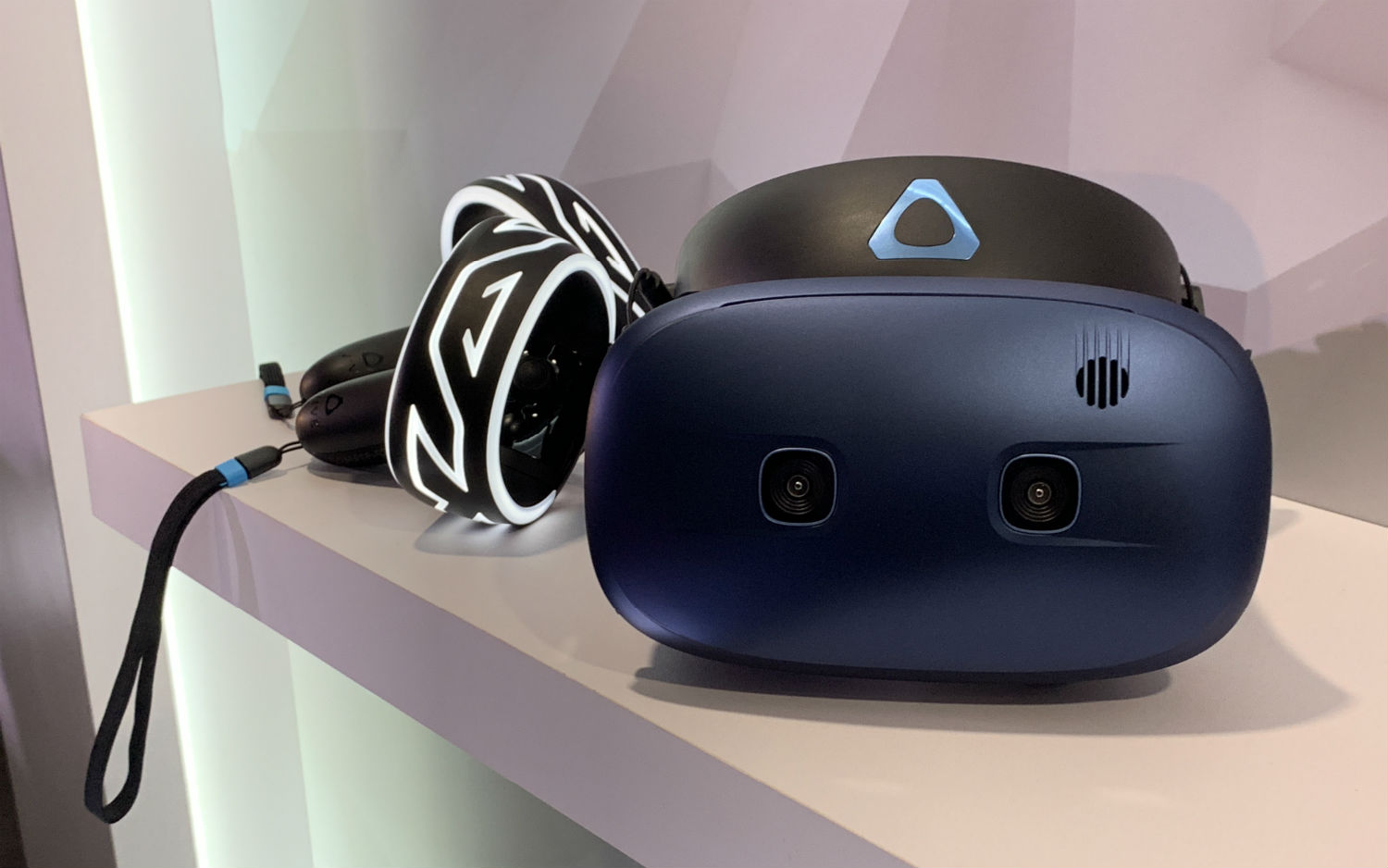
For everyday users, VR has been a tough sell. Price has been a major obstacle as well as the space needed to accommodate a high-end device. But comfort and ease of use are also major factors. According to HTC, 85 percent of VR users say ease of us is the most important feature of a VR headset.
This is where the Vive Cosmo comes in. Sporting the deep blue of the Vive Pro and Eye, the Cosmo looks familiar and foreign from anything HTC has previously released. It lacks all the indentations of previous headsets used by the Lighthouse sensors to track the headset. That’s intentional as Cosmos won’t rely on any external tracking sensors, which points strongly at onboard internal sensors.
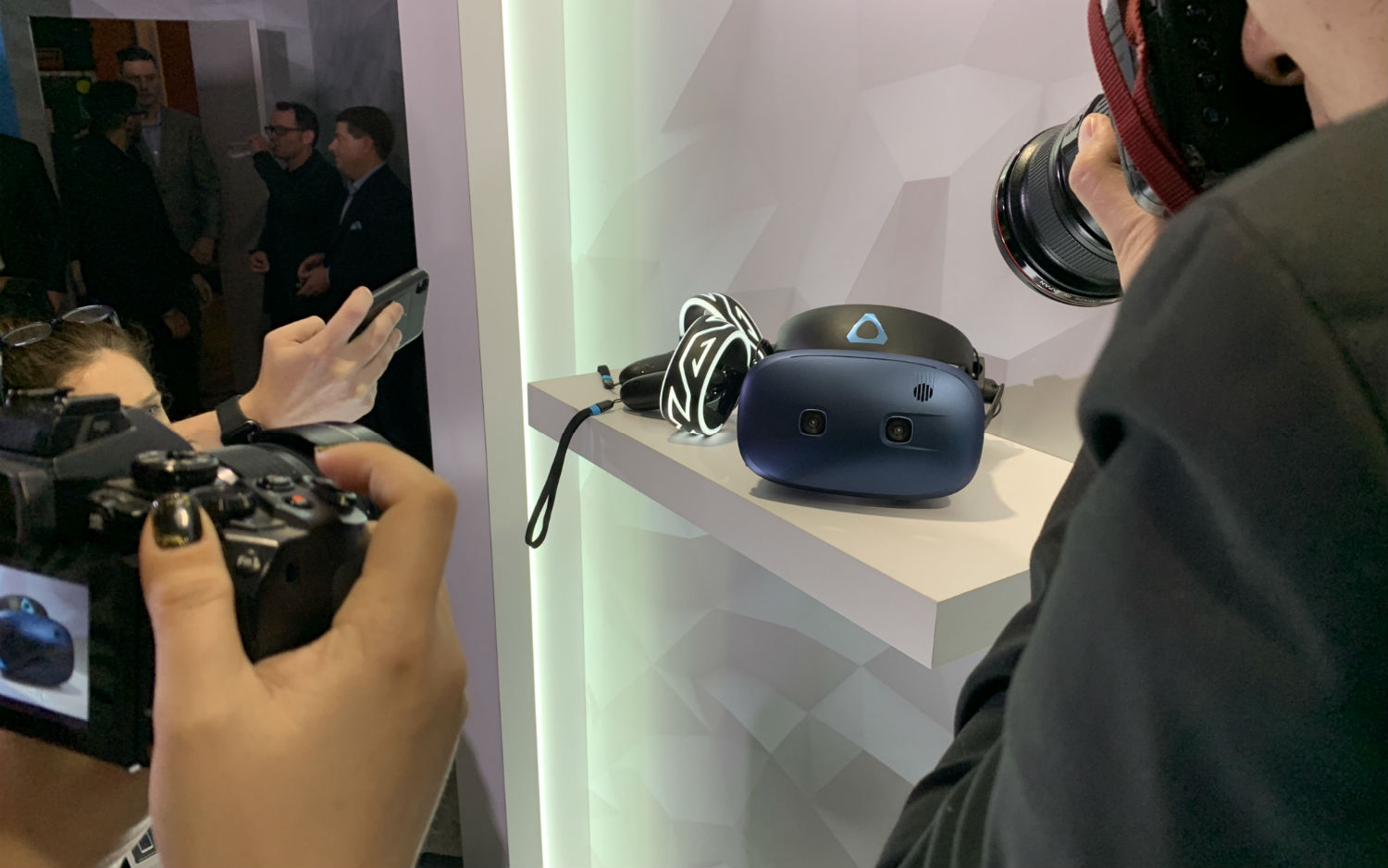
The Cosmos’ main focus is on comfort. The headset has an easy flip up design so you can effortless transition between the real and virtual worlds. The headset also features handheld controllers, which with the glowing circular rings, looks like something out of the movie Tron.
Similar to other Vive headsets, Cosmos can be powered by a gaming PC. However, a glowing silhouette of a smartphone, is a strong hint in the direction HTC is headed. And while consumers are still lukewarm of VR, it’s truly an exciting time for the technology.
Sign up to get the BEST of Tom's Guide direct to your inbox.
Get instant access to breaking news, the hottest reviews, great deals and helpful tips.
MORE: 6 Cheap VR Headsets (Under $45) Ranked from Best to Worst
Vive Pro Eye
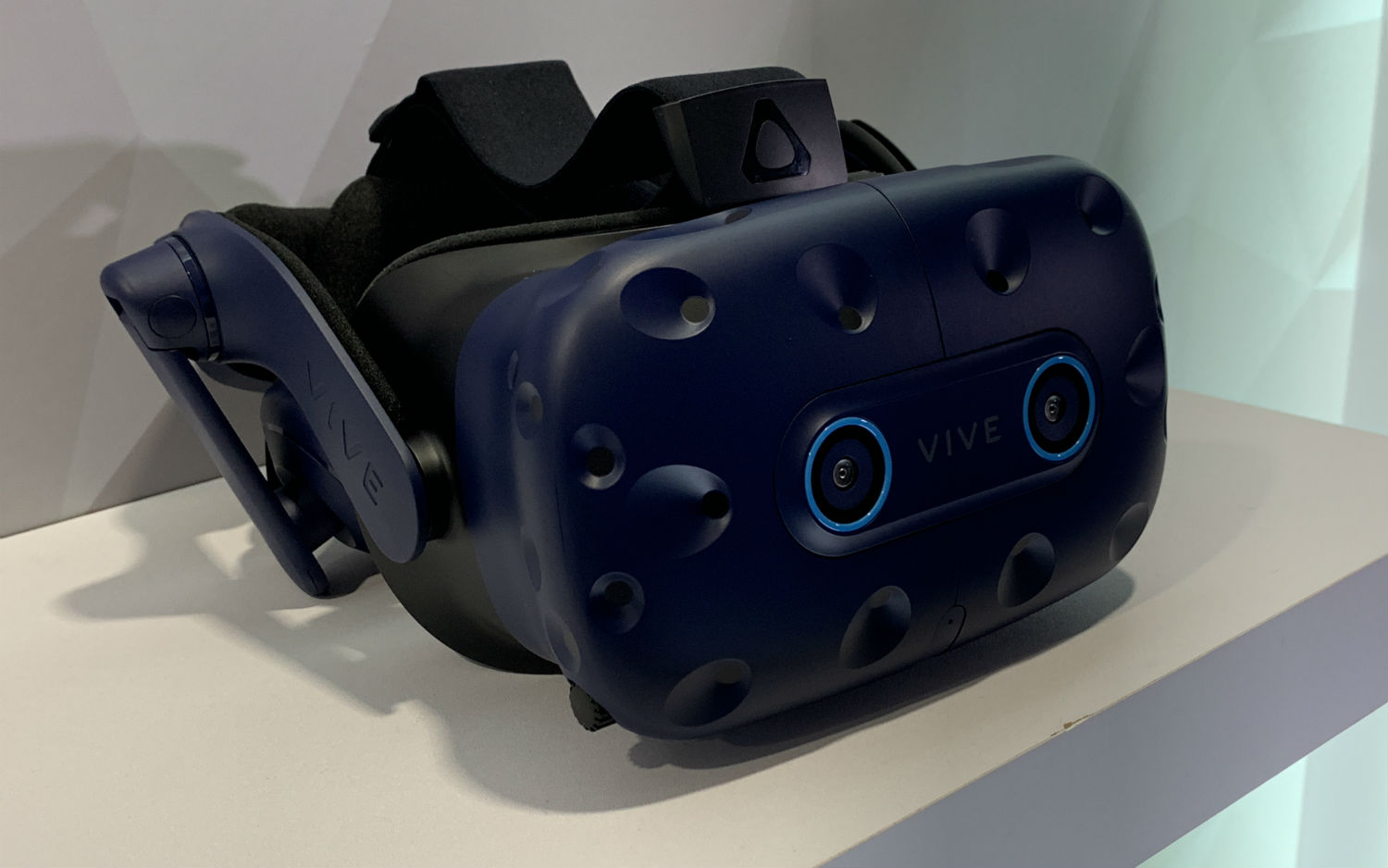
If you’ve ever used a virtual reality headset, you know that it tracks a lot of things including your head and hands to ensure a seamless, immersive experience. HTC is pushing the envelope with a new piece of hardware, the HTC Vive Pro Eye. As the name suggests, this new headset is bringing eye integration into the mix, improving performance for both the company and consumers.
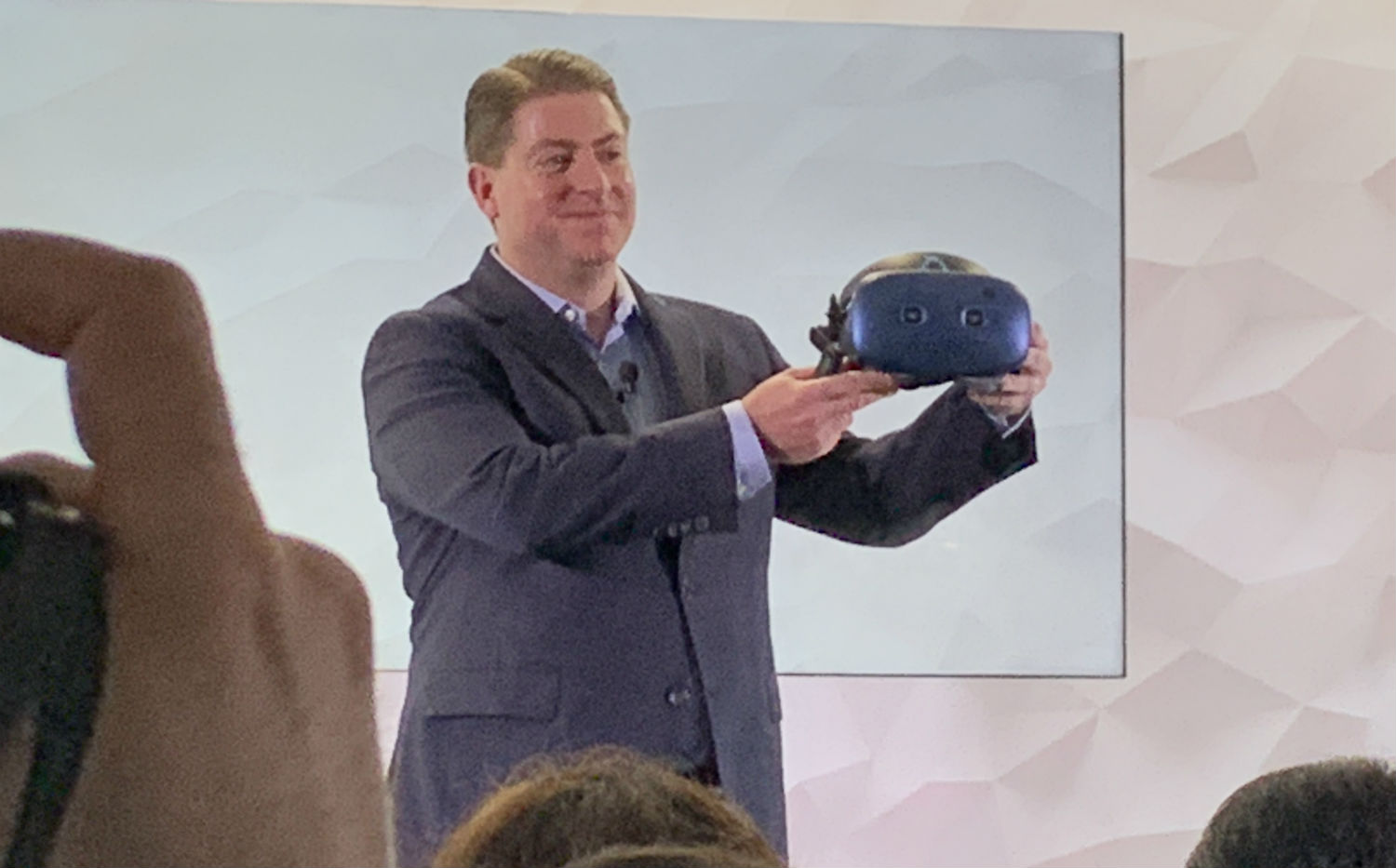
HTC General Manager, Americas, Dan O’Brien, positioned the Eye hardware as a great move for enterprise users. Some key benefits mentioned potential using the Eye include better product design and user research, better accessibility, increased speed of VR interactions and more efficient CPU and GPU usage. The last one is important for people using laptops to run their VR experience as the practice burns through battery life.
In addition to eye tracking, HTC is also improving its visual quality. The company announced that its introducing fovated rendering software into the mix using Nvidia’s new RTX technology to create sharper images in VR by drastically reducing the resolution around areas in the wearer’s peripheral vision. Combined with the eye tracking tech, companies can track where consumers look the most to help develop products.
Viveport Infinite, Vive Reality System
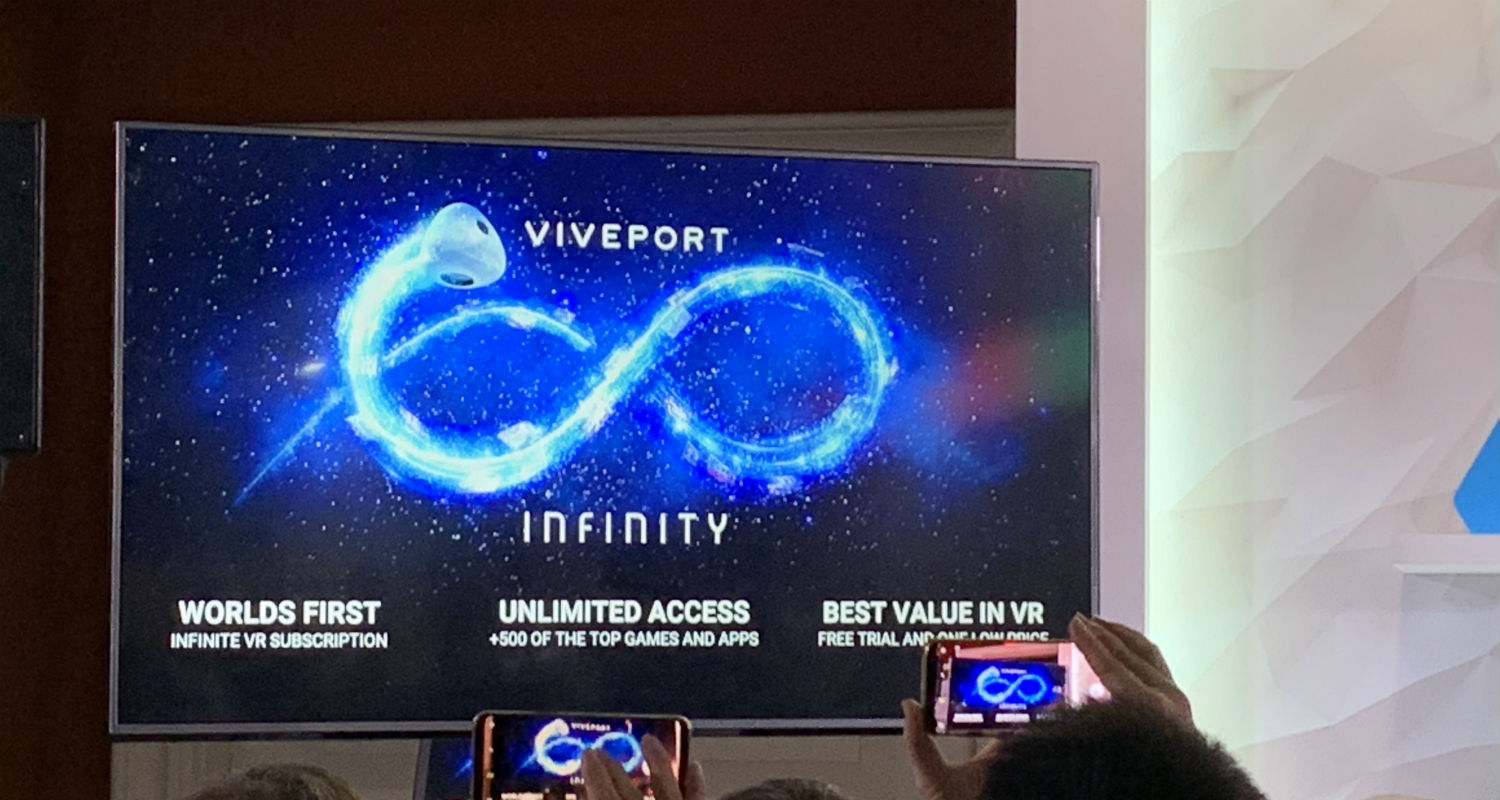
HTC also announced a new subscription service for Viveport called Infinite, which will give you access to 500 apps and games and any given time starting April 5. And HTC is also looking to reimagine the whole VR experience with its new Vive Reality System.
Highlights include Origin, which is a rich virtual world for interacting with others, and Vive Lens, which lets you travel between virtual worlds with ease.
Last but not least, HTC is working with both Firefox and Amazon AWS to reinvent the web for VR. Firefox, for example, will be optimized for quick and easy searches and access to your favorite sites in virtual reality.
Sherri L. Smith has been cranking out product reviews for Laptopmag.com since 2011. In that time, she's reviewed more than her share of laptops, tablets, smartphones and everything in between. The resident gamer and audio junkie, Sherri was previously a managing editor for Black Web 2.0 and contributed to BET.Com and Popgadget.

